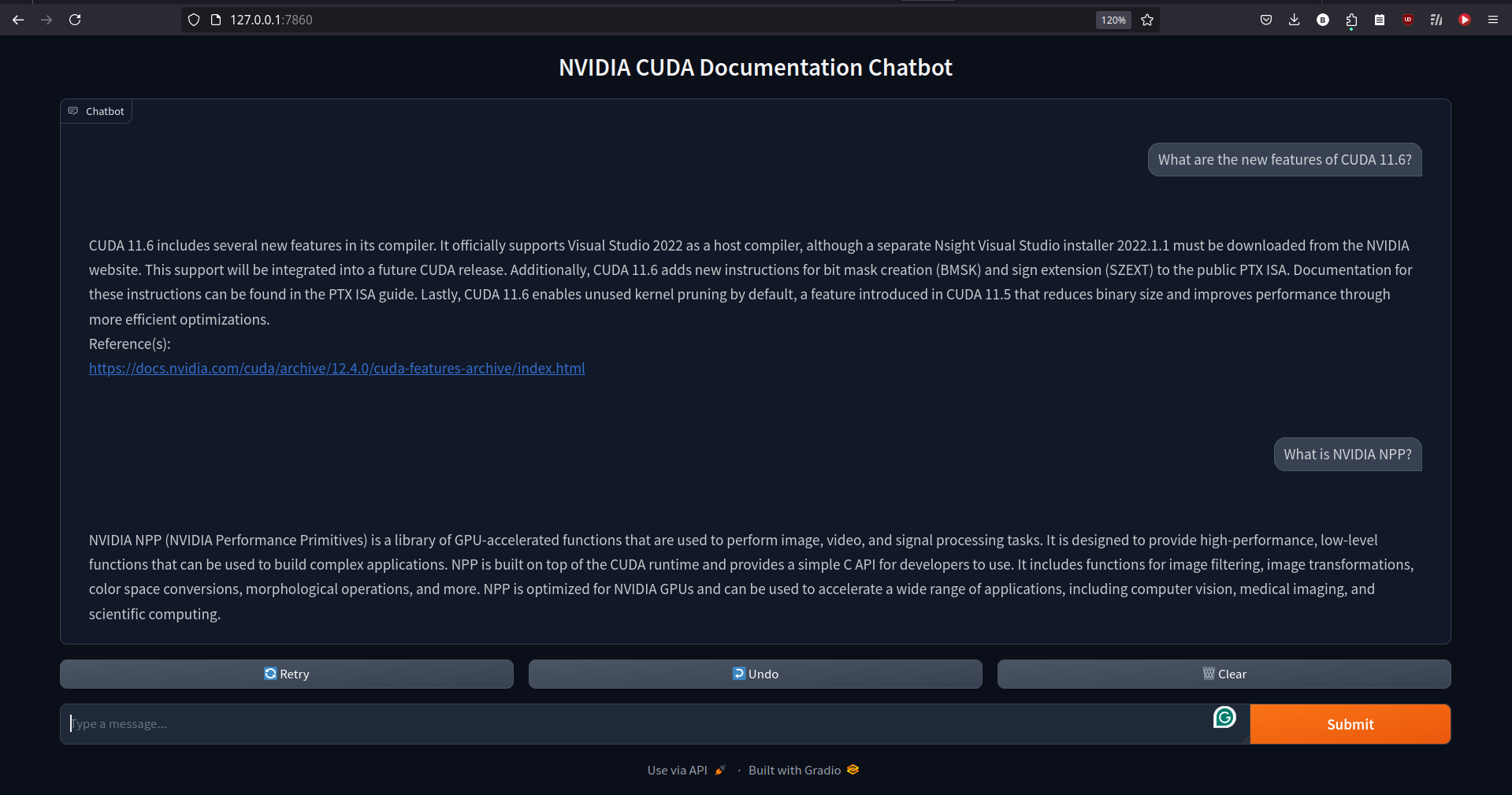- The data is sourced from https://docs.nvidia.com/cuda/, scraped up to 5 levels of sub-link depth using Scrapy and is processed and cleaned.
- The scraped data was chunked using semantic chunking via Langchain and embedded with HuggingFace's sentence-transformers/all-mpnet-base-v2.
- The data alongside metadata is stored using MILVUS with HNSW indexing in a Zilliz cloud cluster.
- BGE-M3 colbert+sparse+dense re-ranking pipeline via HF inference API is used to re-rank MILVUS vector search results. Local hybrid BGE-M3 re-ranking is ideal but was not chosen due to computing limitations causing high latency.
- Mixtral-8x7B-Instruct-v0.1 LLM via the HF inference API is used for chat. Ideally, a larger and locally hosted model should yield the best performance, but computing limitations.
- Gradio is being used for the user interface.
git clone https://github.com/bharathraj-v/rag-chat,cd rag-chat&pip install -r requirements.txt.- Set up your MILVUS account, modify and run the Milvus client URL and code according to your set-up - (different for docker, zilliz, etc.) in
main.ipynbto store the data in a vector database. - Set up HUGGINGFACE_TOKEN env variable in .env file for BGE-M3 and Mixtral usage via inference API.
- Run the gradio_app.py via
python gradio_app.pyto access the user interface. Alternatively, you can run the code at the end of themain.ipynb. - Please feel free to reach out to me at
bharathrajpalivela@gmail.comin case of any queries.
(Alternate link for the jsonl file containing chunks & embeddings - https://drive.google.com/file/d/1BYAlY0eqwKXR_NuMWM92_CWVoJGS5N2g/view?usp=sharing in case LFS is not working)
